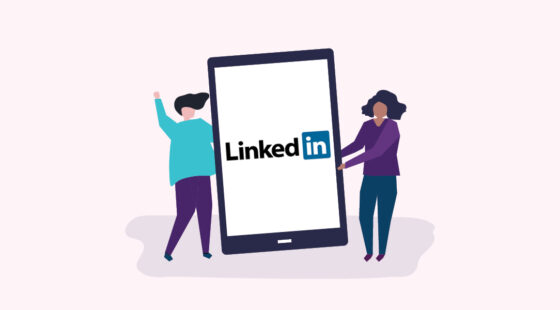 Diana’s career includes nearly 20 years as a strategic and operational CFO for iMedia Brands, Inc., Cooper’s Hawk Winery & Restaurants, Famous Dave’s of America, Inc. (BBQ Holdings) and Paper Warehouse, Inc. She is also an award-winning public and private Chief Financial Officer and Board Member, who qualifies as a financial expert and is well-positioned to serve on diverse board committees including audit and compensation. She is known for providing steady leadership, fiscal discipline, and governance and oversight in times of significant change, including growth, restructurings, turnarounds, and shareholder activism. She has held leadership roles in publicly traded, private, and private-equity sponsored structures, and multi-location franchising, and founder-led companies within the Consumer space.
Diana’s career includes nearly 20 years as a strategic and operational CFO for iMedia Brands, Inc., Cooper’s Hawk Winery & Restaurants, Famous Dave’s of America, Inc. (BBQ Holdings) and Paper Warehouse, Inc. She is also an award-winning public and private Chief Financial Officer and Board Member, who qualifies as a financial expert and is well-positioned to serve on diverse board committees including audit and compensation. She is known for providing steady leadership, fiscal discipline, and governance and oversight in times of significant change, including growth, restructurings, turnarounds, and shareholder activism. She has held leadership roles in publicly traded, private, and private-equity sponsored structures, and multi-location franchising, and founder-led companies within the Consumer space.
What inspired your corporate board journey?
I’ve long had an interest in being able to leverage my experiences within the areas of audit, compensation, strategy and governance to help a company grow and succeed. Given my 20-year career as a CFO, I effectively grew up in the boardroom, and I was able to appreciate the focus and dialogue that happened during board meetings, including the respectful challenges and debates. Additionally, I’ve benefitted throughout my career from having audit committee chairs mentor me and welcome the opportunity to do the same in my board role.
How long did it take you to get your first corporate board seat after you started devoting time to the process?
I’ll say that my journey has been one of fits and spurts. For many years, while in role, I was actually precluded from board service by my own board. Then when I switched companies, I found that either I didn’t have the time due to my responsibilities, or board service conflicted with the needs of my own board. This recent effort has been intentional, and it has taken me well over a year to secure my first board role.
What was your biggest fear when it came to corporate board service?
My biggest concern was being able to get up to speed as quickly as possible in a complex industry in order to add value as a board member.
What was your greatest obstacle in getting on a corporate board?
Honestly, despite having years of experience in the boardroom, the greatest obstacle was not having direct corporate board service experience. It’s the age-old conundrum – you need experience to get on a board, but you can’t get the experience you need without getting on a board.
How many corporate boards did you interview for before landing your first seat at the table?
I interviewed for four boards over the course of my career.
What’s one thing that surprised you about the process of working toward a corporate board seat?
The thing that surprised me the most was the length of time that it truly does take to get on a corporate board. You have to be committed (versus simply interested), and you have to be intentional about your message.
How did you get connected to your first board seat?
It was through a board opening notification from Women in the Boardroom!
How did you prepare for getting on a corporate board?
The first step I took was to ensure that all of my branding and marketing materials were up to date and consistent, including my board bio and LinkedIn profile. I also made sure that my network understood my intentionality around board service, especially women. Women are in a unique position to help other women get on boards. Given the push for diversity, a woman who is on a board already will have opportunities come her way that she is able to recommend other qualified women for.
What one piece of advice would you offer to women interested in corporate board service?
I would say – make sure that you have the support of your organization first and that you can devote the time. Also, do your diligence to ensure that it is a good fit for you as well as the corporate board.
What one thing do you wish you knew before you started your board journey?
I wish I knew how important it was to keep up my network. We all get busy with life and work, but I would tell all women aspiring to corporate board service to make sure that they are networking and staying visible within their business communities.
What knowledge and/or practice specific to WIB prepared you for corporate board service?
The tools were very helpful. Specifically, the webinars, connections with other women, and the check-ins with Sheila. Women in the Boardroom puts discipline around the process of searching for a board seat. In my particular instance, the work that I did with the WIB board strategists in developing my elevator speech was helpful, and the template they provided for creating a cover letter was very effective and useful.
Why should women be interested in serving on a corporate board?
Women bring such a different perspective and thought process into the boardroom that is so valuable. They often can see the softer side of things and bring critical items like inquiries to challenges or inserting a viewpoint from a different perspective, leading to a more robust and productive dialogue. Studies show again and again that companies who have women on their boards perform better than those that don’t.
How has preparing for board service sharpened your professional skills?
It’s strengthened my ability to listen more than to speak and it has sparked a different level of intellectual curiosity.






